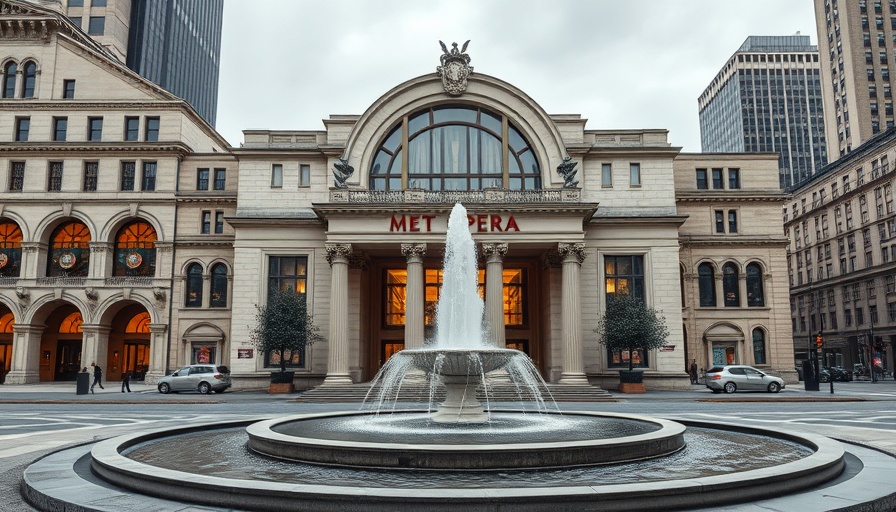
Declining Attendance: Understanding the Numbers
The Metropolitan Opera is facing a downward trend in attendance as international tourists, a crucial demographic for the venue, have significantly decreased. This drop aligns with the Trump administration's immigration policies, which likely deterred many potential visitors. Recently, the Met reported that 72% of its seating capacity was filled, a decrease from 75% initially projected for the 2023-2024 season. The Met's general manager, Peter Gelb, shared his disappointment, attributing the sales decline to a notable fall in tourism, evidenced by a 17% revision in New York City’s international visitor projections for 2025.
Impact of Economic Uncertainty on Ticket Sales
There is another layer of complexity to this story: economic uncertainty. Factors such as fluctuating stock market conditions have made people wary of making community investments like attending opera performances. According to Gelb, the high volatility witnessed recently directly impacted advance ticket sales for the upcoming season, as many opted to hold off rather than commit. The opera house earned only 60% of its potential income last season—an improvement from the previous year yet still a troubling trend.
Shifts in Audience Demographics
Interestingly, demographic shifts among those purchasing tickets also raise eyebrows. The average age of a single ticket buyer has fallen to 44, a notable reduction from 50 before the pandemic. A decreased percentage of subscriptions—only 7% of ticket sales now compared to 12-15% prior to the pandemic—sparks concerns about the opera's future engagement with audiences. Painting a fuller picture, the Met welcomed 76,000 new ticket buyers, yet this was still a decline from 85,000 the previous year.
Ticket Discounts: A Double-Edged Sword
In a bid to counteract declining sales, there’s been an increase in ticket discounts. While these promotions made it easier for some to access performances, they may undermine perceived value and long-term financial stability for the Met. Discounts accounted for a larger portion of sales this past season, signifying a need to balance accessibility with sustainability.
Exploring the Future: What Lies Ahead for the Met?
Looking forward, several productions have shown resilience in sales, with the latest versions of Mozart’s “The Magic Flute” and Verdi’s “Aida” achieving an impressive ticket sales rate of 82%. Meanwhile, operas like “Moby-Dick” and “Salome” also performed well, which instills some hope. Still, with economic factors looming large and a potential reduction in international tourism, stakeholders must devise innovative strategies to nurture audience engagement and ticket sales in the near future.
Final Thoughts: The Importance of a Thriving Arts Scene
The decline in attendance at the Metropolitan Opera provides a crucial lens through which we can assess the health of cultural institutions in the U.S. The arts scene not only enhances cultural richness but serves as a barometer of societal wellbeing. As the Met faces these challenges, it calls on communities to support and engage with their local arts since their survival ensures diversity in experiences and enhances community connections.
 Add Row
Add Row  Add
Add 




 Add Row
Add Row  Add
Add 

Write A Comment